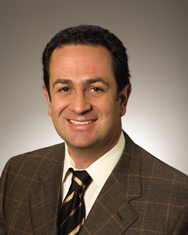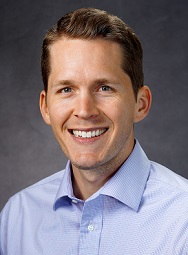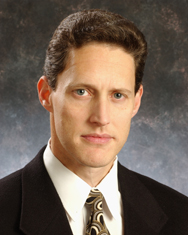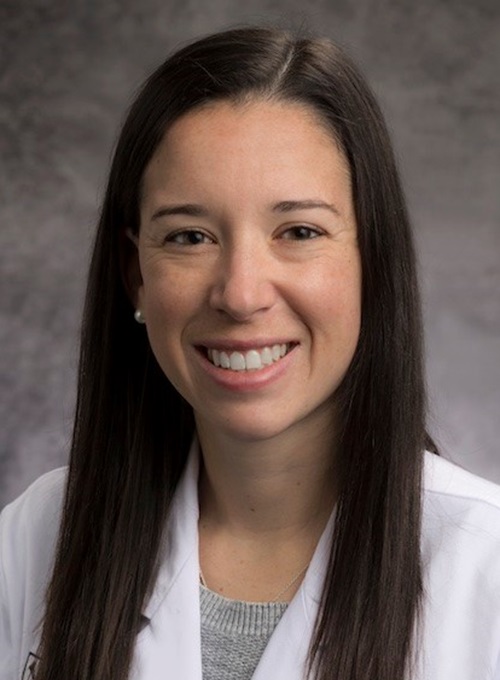Providers (showing 1301-1310 of 1382 results)

Todd L. Siegal, MD

James E. Siegler, MD
About Me
Jim Siegler, MD, is a new recruit from the Hospital of the University of Pennsylvania, where he recently completed his adult neurology residency, and clinical and research fellowships in vascular neurology. Although he is active in a number of ongoing research projects and clinical trials, Dr. Siegler is more widely known as the Senior Producer of BrainWaves: A Neurology Podcast. Since its inception in 2013, the BrainWaves Podcast has been played nearly half a million times in the US and around the globe. Dr. Siegler also serves on the Editorial Board of Neurology®, is an Assistant Producer of the AAN’s NeuroBytes video-based educational curriculum, and is the senior producer and editor of the Neurocritical Care Society Podcast. When he is not in his recording studio, you can probably find him watching senseless action movies from the 90s or riding his bike out to Valley Forge.

Seema Sikand, MD

Robert M. Simons, MD, FACS

Brianna L. Siracuse, MD

Matthew Siri, MD

Brian M. Smith, DMD, MD, FACOMS

Stephanie V. Smith, MD
About Me
Stephanie Smith, MD, is Assistant Professor of Emergency Medicine at CMSRU. After completing her undergraduate degree at Bucknell University, Dr. Smith earned her medical degree at Temple University School of Medicine. She then completed her emergency medicine residency at Cooper University Hospital, where she served as chief resident in her final year.
Dr. Smith is passionate about undergraduate and graduate education. In her role as Director of Student Affairs at CMSRU, Dr. Smith provides career advising and mentoring to medical students. She also frequently runs simulation sessions for fourth year medical students, and is a co-director for the summer emergencies/teaching residency education module.

Sarab Sodhi, MD, MAUB
About Me
Sarab Sodhi, MD, is an Assistant Professor of Emergency Medicine at Cooper Medical School of Rowan University and currently serves as Director of Undergraduate Ultrasound there. He graduated from Albright College with a degree in biochemistry and philosophy, summa cum laude, and obtained his medical degree from Temple University School of Medicine. While there, he also obtained a master's in urban bioethics. He completed his residency in emergency medicine at Cooper University Hospital, and stayed on for fellowship in emergency ultrasound as Cooper's inaugural fellow. Since 2019, Dr. Sodhi has been core ultrasound and clinical faculty working in the Emergency Medicine Department at Cooper University Hospital.
Dr. Sodhi has passion for all things ultrasound, and graduate and undergraduate medical education. He's lectured frequently, locally, regionally, and nationally. While a recalcitrant researcher, he has a developing research niche with various projects ongoing regarding student and resident education, ultrasound, and pre-hospital ultrasound. Along with Dr. Volino, they have created a four-year integrated longitudinal ultrasound curriculum for the medical school. He was most recently awarded the 2019 Gold Humanism Award for CMSRU, the 2020 Golden Apple for clinical faculty, and was inducted into the Gold Humanism Society as the junior faculty member in 2024.

Alann R. Solina, MD
About Me
Dr. Solina is Professor and Chair of the Department of Anesthesiology at Cooper Medical School of Rowan University and Chief of Anesthesia and Medical Director of OR Services at Cooper University Health Care.
Dr. Solina was previously Professor, Vice Chair, and Chief of Cardiac Anesthesiology at Robert Wood Medical School from 1992 through 2015. While there, Dr. Solina was involved with clinical, business, financial, and administrative operations. His clinical, educational, and research interests primarily involved cardiac anesthesiology. He also served as the Program Director for the first Accredited Cardiac Anesthesiology Fellowship Program in NJ.
Since joining CUHC/CMSRU Dr. Solina has focused on the further development of the departmental Quality & Safety Program, Leadership Platform Development, Division Head Development, Faculty and Staff Development, Recruitment and Retention, Engagement, Operational Efficiency, Regulatory Compliance, Survey Readiness, Cost Containment, Engagement at our Medical School, Enhancement of all Educational Programs, and further development of the Departmental Research Program.
